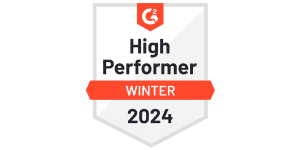22 May

Aiming to tackle business needs comprehensively, Salesforce is home to numerous extensive solutions regarding their target domains. Recently, more and more have been offered towards a more holistic approach, and a special platform for B2B eCommerce on Salesforce emerged in that climate. For a complete B2B channel experience, most of them encompassed the financials – including sales-enablement, procurement processes, and many others.
From the worldly point of view, we might feel all set with countless options in B2B eCommerce on Salesforce, but one thing shouldn’t go missing: the engagement strategy in your business. Fortunately, special products like Apex Loyalty are on board with Salesforce to cover this need.
Managing the Experience
For a seamless experience across your partner ecosystem, you must integrate a complete engagement strategy with your eCommerce platform. Integrating the above mechanisms with marketing insights and brand loyalty activities, you will invest in a “personalized experience for all” attitude throughout your channel.
The definition of personalized customer experience encompasses various parameters. It addresses customer’s responses to interactions that occur before, during, or after the buying across multiple channels and times. With Apex Loyalty’s dynamic rules engines, you can reach the necessary insights from the mentioned times and locations. This feature has become even more valid in the eCommerce ecosystem. Why so? Let’s have a look at what eCommerce is in the first place. Once we’re familiar with the dynamics of B2B eCommerce on Salesforce, we can understand the importance of engagement within your eCommerce platform.
Benefits of B2B eCommerce on Salesforce
B2B eCommerce on Salesforce offers many benefits, revolutionizing how businesses manage customer relationships and sales processes. By integrating B2B eCommerce on Salesforce platform, companies gain a centralized system that enhances efficiency and customer experience. One primary advantage is the streamlined sales process. Salesforce enables automated order processing, inventory management, and customer data analysis, leading to faster and more accurate order fulfillment. Additionally, Salesforce’s robust CRM capabilities ensure a personalized customer journey, fostering stronger relationships and increased customer loyalty.
Salesforce’s analytics and reporting tools provide valuable insights into customer behavior, market trends, and sales performance. This data-driven approach allows businesses to make informed decisions, tailor their marketing strategies, and identify new opportunities. Salesforce’s scalable platform also supports business growth without compromising performance or user experience, making it ideal for businesses of all sizes.
Another significant benefit is the enhanced collaboration it fosters. Teams can access shared data and insights, improving internal communication and coordination. This unified approach breaks down silos and ensures everyone is aligned with the company’s goals and strategies.
Dynamics of Ecommerce on Salesforce for B2B
eCommerce stands for “electronic commerce,” meaning buying or selling happens on online services, in other words, over the Internet. When we think of eCommerce, we tend to take it as an individual activity like online shopping, focusing on bringing ease to daily life because you don’t have to be somewhere to complete the purchase. In the B2B environment, it’s way more complex than that. The case here involves more than a few items to purchase.
What we are handling in B2B eCommerce on Salesforce is hundreds of items to purchase simultaneously. This will also influence your budget and bring workload to your teams since each item will bring more negotiation processes, pricing talks, and other layers of interactions. This summary gives us an idea of why eCommerce is more than buying something online. Ecommerce within the B2B context entails better procurement capabilities that fit your industry. We support companies for B2B eCommerce on Salesforce platforms so that our partners will have an easy, consumer-like buying experience.
Does Your Ecommerce Platform Cover It All?
So, it shouldn’t be surprising that B2B businesses are turning to compact solutions for B2B eCommerce on Salesforce. Such solutions enable companies to create exceptional eCommerce storefronts and customer experiences. They are designed for seamless and personalized multichannel relationships with business buyers, eliminating work related to emailing, calling, ordering by piece, returning to customer records, etc.
Being able to leave such office chores aside is a relief. However, converting to a full experience for B2B eCommerce on Salesforce will be complete once you take the necessary steps for engagement on the CRM base. Why? How are these two concepts relevant? Let’s have a look at what marketing bloggers have to say about this.
The direct quote from Trailhead explains the relevance of B2B commerce and relationships perfectly: “Organizations build their product and sales teams around the account and contact segmentation. Sales and service teams organize around this. Marketing campaigns are also targeted to the segment and account. Commerce unifies marketing, sales, and service to deliver the right product, price, and promotion to the customer, whether online or offline.” (Reference: “Understand How CRM Powers B2B Commerce” section on Salesforce Trailhead). This also explains how nourishing relationships power your efforts for B2B eCommerce. And to empower the relationships, it’s now the turn for engagement and loyalty activities.
Catalyzing Engagement in Ecommerce on Salesforce with Apex Loyalty
The structure of Apex Loyalty is directly linked to the notions of B2B eCommerce on Salesforce that bloggers talk about. Once your operational hassles are automated, you can fully focus on user experience. Here, we deal with the marketing campaigns and segmentation needs.
Our prominent traits are exceptional B2B loyalty, engagement, and incentive automation mechanisms. Through Apex Loyalty, with B2B loyalty for Salesforce, your campaigns, and content creation occur based on customer segmentation according to CRM data and behavior patterns. With these, you can educate and increase brand knowledge across all the actors within your channel and give them the personalized experience we’ve tackled all along. Sustaining continuous engagement, Apex Loyalty helps you build a powerful online stance while providing your partners with real experience.
You can read our previous article from https://www.apexloyalty.com/salesforce-engagement-platform-in-b2b/











